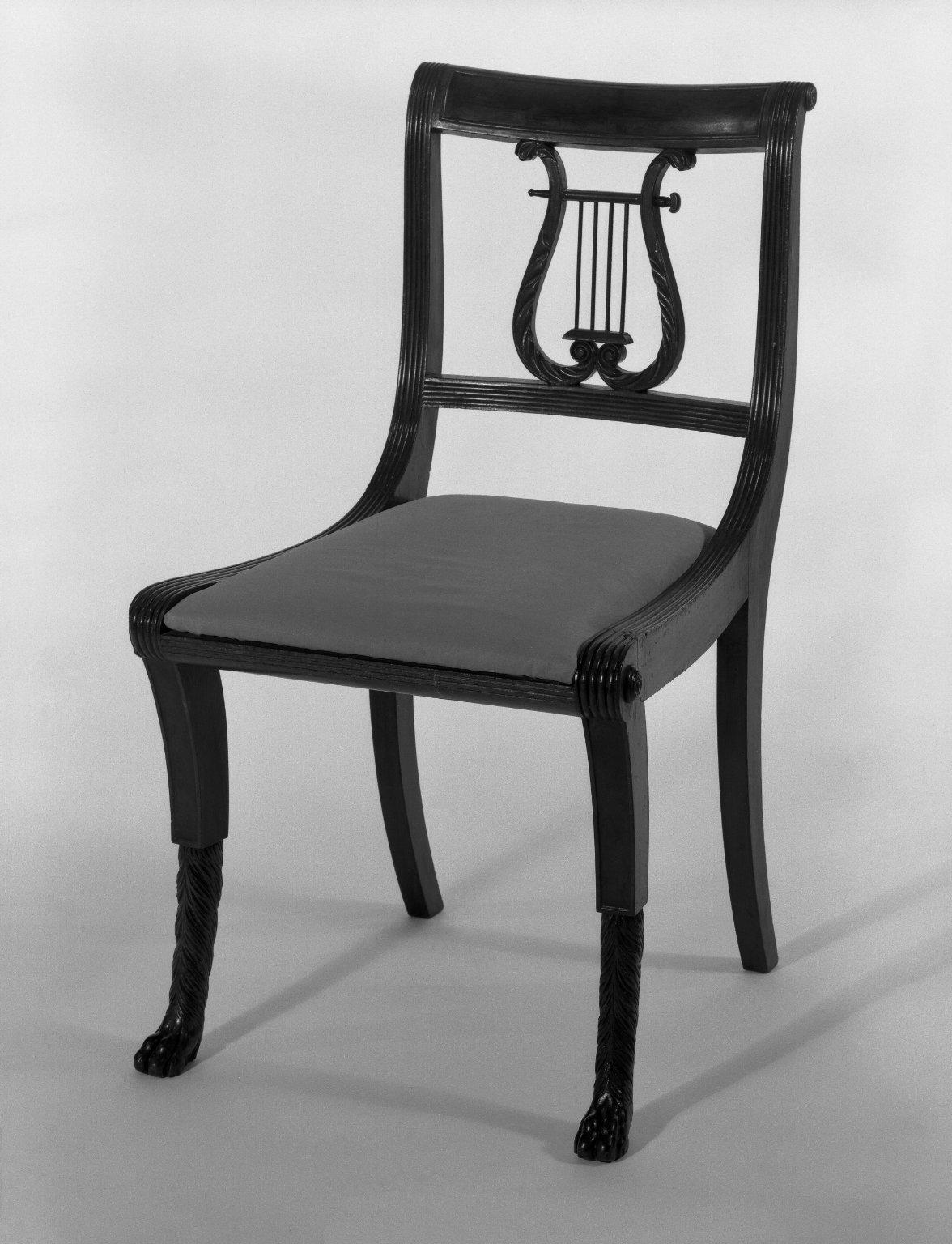Chair, One from a Set of 10
Duncan Phyfe

Brooklyn Museum photograph
Object Label
These two chairs, produced about the same time in the Northeast, both take the ancient Greek klismos chair as their design source—as evidenced by the continuous curve of the back and seat and the splayed saber legs—but were made in very different ways. The Phyfe chair, part of a large dining set, is hand carved in expensive, imported mahogany. The Gragg chair (perhaps the earliest patented furniture design in the United States) incorporates parts made by steaming and bending wood, which streamlined the cost and speed of production. Gragg’s chair found some commercial success, but his innovations were not widely embraced by chairmakers or consumers. In the early days of industrialization, invention was not as readily accepted as it is today, when consumers line up to purchase the latest cell phone.
Caption
Duncan Phyfe (American, born Scotland, 1768–1854). Chair, One from a Set of 10, 1816. Mahogany, watered damask, height of back: 23 1/4 in. (59.1 cm) height of seat: 17 in. (43.2 cm) 32 1/4 x 18 1/2 x 19 1/2 in. (81.9 x 47 x 49.5 cm). Brooklyn Museum, H. Randolph Lever Fund, 67.19.2. (Photo: Brooklyn Museum)
Gallery
Not on view
Collection
Gallery
Not on view
Collection
Maker
Title
Chair, One from a Set of 10
Date
1816
Medium
Mahogany, watered damask
Classification
Dimensions
height of back: 23 1/4 in. (59.1 cm) height of seat: 17 in. (43.2 cm) 32 1/4 x 18 1/2 x 19 1/2 in. (81.9 x 47 x 49.5 cm)
Credit Line
H. Randolph Lever Fund
Accession Number
67.19.2
Frequent Art Questions
Is this a Duncan Phyfe chair?
 Yes, it is! It was carved by hand in his New York workshop out of mahogany, a very expensive wood that was imported from the West Indes.It's a great example of the Neoclassical style. This is a "klismos chair", which was a form used by the Ancient Greek poets. Duncan Phyfe was one of the first American designers to produce chairs with that detail.
Yes, it is! It was carved by hand in his New York workshop out of mahogany, a very expensive wood that was imported from the West Indes.It's a great example of the Neoclassical style. This is a "klismos chair", which was a form used by the Ancient Greek poets. Duncan Phyfe was one of the first American designers to produce chairs with that detail.
Have information?
Have information about an artwork? Contact us at